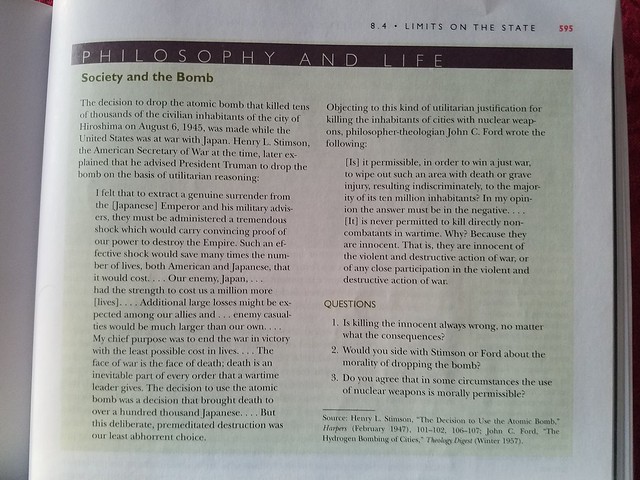
As I promised in yesterday’s post on my Brain Upgrade Project, the following are excerpts from the email responses I received to the following question:
“Ask six friends what they think philosophy is.”
The study of critical thinking.
∞ ∞ ∞
. . . philosophy is the contemplation of our existence, sentience, and interaction with the universe and its inhabitants. I believe we as humans agree that our capacity to reflect upon our existence is unique. And that we are seeking elusive knowledge for our propose through this process.
∞ ∞ ∞
Narrowly, philosophy is the love of knowledge. Broadly, it’s the inquiry into what is real, true, valuable; how we know it and what difference it makes; what is man, who am I, why am I here, what am I to do? It is the search of meaning and purpose in life.
∞ ∞ ∞
Philosophy to me is a general moral framework to help determine one’s actions and explain how the world works (or should work).
∞ ∞ ∞
After taking two required philosophy courses in college many moons ago, I decided philosophy is the opportunity for a professor to put forward his/her agenda and give you poor grades if you don’t agree with it-no matter how much you support your point of view.
I guess I would define philosophy as the study/search for answers regarding, well, existence: who we are, what things are, why things are the way they are, and how things should be (i.e. ethics and morality). I believe (although I could be wrong) a lot of science has it’s roots in philosophy (if I remember correctly, it was one of the very early philosophers that theorized the existence of atoms). You could almost say that philosophy is the study of questions.
∞ ∞ ∞
I would say philosophy is the study of thinking, the why we think, that we can think, the how we think ~ leading to our conclusions ~ which remain in a state of flux, to a point!!
The importance of this should be that we understand the decisions we make, there is a trail or should be of how we got to that point.
∞ ∞ ∞
My answer to the similar question posed to my Philosophy class by our professor:
“How philosophy is defined? How would your define it?”
Philosophy means the love of wisdom with a goal to help us achieve autonomy, by making us more aware of our own beliefs and encouraging us to think through issues for ourselves. Philosophy is also an activity, and not an easy one, but the struggle for freedom never is, especially when we examine our most basic beliefs and assumptions under the microscope of reason. I would define philosophy as unrelenting curiosity and drive to ask, and attempt to answer for ourselves, the hard questions about our purpose, our place in the world and the universe, our mortality and our morality

Next post I’ll ruminate about my reading of the second chapter of my Introduction to Philosophy textbook: Human Nature




